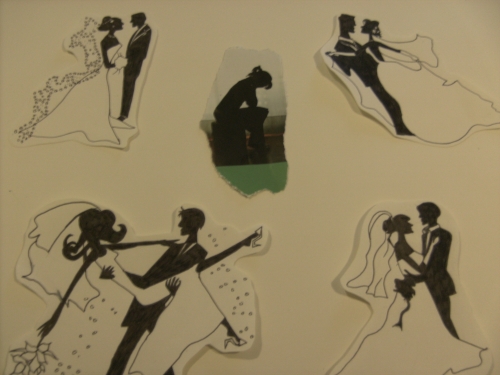

‘I am the product of long corridors, empty sunlit rooms, upstairs indoor silences, attics explored in solitude, distant noises of gurgling cisterns and pipes, and the noise of wind under the tiles. Also, of endless books…….books of all kinds reflecting every transient stage of my parents’ interests, books readable and unreadable, books suitable for a child and books most emphatically not. Nothing was forbidden me. In the seemingly endless rainy afternoons I took volume after volume from the shelves.’
– CS Lewis in ‘Surprised by Joy’, 1955
Well, we have something after all to thank the British weather for!
But that’s not the point of this blog.
The point is, haven’t we all experienced our own ‘long corridors, empty sunlit rooms and distant noises of gurgling cisterns and pipes’? Don’t we all as children feel the weight and the stirrings of the world around the corner? For my part it was hours spent in the garden with my open umbrella thrust imploringly to the wind, trusting it would carry me far away, or searching for crevices between tree roots where I might just crawl down a rabbit hole, or opening my eyes beneath the warm glassy bath water and wishing it would swallow me up and spit me out in that other place, or following elusive and wandering sun shafts through the woods on holiday.
And as we grow older, don’t we sometimes still turn around expecting to see the origin of a whispering? Or get magnetised gazing into a dusky distance, as if that horizon were where we needed to be?
What if we had a small group of like-minded friends who also sensed the pullings, who could look into the atmosphere with us and watch it fracture and split clean open, parting the air for a moment to reveal who-knows-what? Who could listen to, and encourage us in the pursuit of our tales, gropings and wonderings, and help us, each in turn, to craft them either into a deeper conviction, or even into a solid work of art?
This is what CS Lewis had, what he was also a product of. On a trip to Oxford last summer I passed the Eagle and Child Pub, affectionately known as the Bird and Baby! The endearingly enthusiastic guide informed us that it was here, in a back room, accompanied by ale and pipes of tobacco, that ‘The Inklings’ met. The Inklings.


Now, I’d known that CS Lewis had been part of a kind of discussion group or ‘old time book club’ but now it was almost right here before my eyes and I was really curious. This literary group of friends, which included not only Lewis but also JRR Tolkien and Charles Williams, formed in the 1930s and continued for nearly 2 decades. That’s amazing, they must have known each other so well, and on a deep level. They met twice a week either in the pub or Lewis’s rooms at Oxford University, although nearly every website I researched had different, but absolute, convictions about the particular night on which The Inklings met! They talked about their ideas and philosophies, their beliefs and about literature and myths, and they read and critiqued each others’ manuscripts. I like to think they dreamed together of unseen things. Their words in that room must have floated up and mingled with the smoke from their pipes and formed a swirling dance of shapes right there above their heads as they talked into the evening. They knew that their fantastical imaginings were not simply make-believe but the coloured expressions of something real. I would so have loved to have been there, even just as a little fly on the wall! It’s amazing to think that in an old pub this little gang birthed stories and worlds that are still meaningful to us today.
But without The Inklings, without each other, would they have developed into the people they became? I’m sure the discussions were not always easy and amicable and agreeable! The Inkling members all had quite strong and different characters and curiosities. Apparently, Charles Williams was a staunch Anglican but was also heavily interested in the occult, Cabala and the place of romantic love in the meaning of the divine and salvation. He had many young female ‘followers’ and agonised over his 20 year-long, unconsummated love affair with a work colleague outside his marriage to his first love. That must have been tortuous! He would definitely be one for further research and a future blog! And yet, despite their differences, CS Lewis greatly admired him and wrote of him as one of his dearest friends.
We all need but rarely find, trusted friends who will listen to our deepest things, encourage us selflessly, but also who will have the courage to tell us for our own good when we are out of line or going off track or being untrue or damaging ourselves or others, or who will simply help us sculpt the good into the brilliant. Charles Williams died in 1945 and this affected The Inklings so much that the group slowly wound down. Lewis knew he himself would never be the same because of the death and that he would never again experience the other Inklings in the same way either. The point he lamented was that Charles drew out certain aspects of people that no one else could in the same way. Therefore the loss of Charles was also the loss of certain sides and aspects of others. This is true for all of us all the time because we each affect others differently, causing them to manifest in different ways. I need you and you need me if we’re to experience ourselves, each other, and other people to the fullest.
(As an aside by the way, Donald Miller, the author of the very honest and insightful tale of a spiritual journey ‘Blue Like Jazz’, wrote a blog about this very idea a few weeks ago in early October 2010 (www.donmilleris.com). It’s worth a read, as are most of his blogs! He pretty much writes a blog a day and it’s always interesting, I don’t know how he does it. But then again, he’s a writer as a job so he gets paid for it. That’s my excuse anyway!)
Back briefly to The Inklings…..
There were a few writers and dreamers who particularly influenced and inspired CS Lewis and some of the other Inklings, such as Lewis Carroll (of Alice in Wonderland fame) and G K Chesterton. Both of these are also great characters worth a blog and a half themselves! Chesterton’s quotes are sparklingly witty! But the person that stood out to me recently was George Macdonald, who lived from 1824 – 1905 and was described as an original thinker, a spiritual guide and a master in the art of myth-making.

He wrote poetry, stories and novels but, interestingly, is best remembered for his fairy tales and fantasies. His unorthodox views led him to offend and rile certain church parishioners and before he had even reached 30 years old he had been forced to resign from being a pastor. At that time he must have felt pretty alone and excluded, and yet he continued with his questioning and exploring and going against the grain rather than acquiescing to the general view, even despite being a ‘wipper snapper’! It’s hard not to feel some kind of odd comfort and affinity with this man! CS Lewis said of him:
‘The quality that had enchanted me in his imaginative works turned out to be the quality of the real universe, the divine, magical, terrifying and ecstatic reality in which we all live’.
How could I not be curious to read his ‘imaginative works’?! So I have started on his ‘Complete Fairy Tales’!

So far, each of his fairy tales seems to mix weird worlds and baffling magical characters to turn conventional thinking and systems on their heads. They’re meanings are obvious and also not obvious, so you have to think and interpret for yourself. The description is so good that you can build a fantastical picture of each scene in your mind’s eye.
So far my favourite fairy tale has been ‘The Light Princess’, which tells of a princess who is cursed at birth by a miserable and bitter aunt. As a result this princess has no weight at all and so floats in the air all the time. That is until the day she discovers water and the local lake, and decides to swim. Once in the water she has weight of her own and can splash and play and finally feel free. A handsome prince finds her playing in the water one day and joins her, and of course he falls in love with her fairly soon! The trouble is that the wicked aunt does not like all this happiness and so causes a serpent to bite a hole into the base of the lake and the water gradually seeps away, to the despair of the princess. The cause of the shrinking lake is finally discovered almost too late, but it can only be remedied if someone is willing to plug the hole with their own body, and so drown. After contemplation, the prince decides wholeheartedly to offer himself. The princess is pleased and not too distressed at this! In fact, she floats in a boat and feeds the prince at his request whilst he is plugging the hole and the water level is rising!! She is quite selfish and unconcerned, though grateful that this prince is saving her lake. Well, I won’t entirely spoil the happy ending, but just want to end with this song, which the prince sang as the water rose to reach his ankles, his knees, his waist and then his chin. I defy you not to be moved!
‘As a world that has no well,
Darkly bright in forest dell;
As a world without the gleam
Of the downward going stream;
As a world without the glance
Of the ocean’s fair expanse;
As a world where never rain
Glittered on the sunny plain;-
Such, my heart, thy world would be,
If no love did flow in thee.
As a world without the sound
Of the rivulets underground;
Or the bubbling of the spring
Out of darkness wandering;
Or the mighty rush and flowing
Of the river’s downward going;
Or the music-showers that drop
On the outspread beech’s top;
Or the ocean’s mighty voice,
When his lifted waves rejoice;-
Such, my soul, they world would be,
If no love did sing in thee.
Lady, keep thy world’s delight;
Keep the waters in thy sight.
Love hath made me strong to go,
For they sake, to realms below,
Where the water’s shine and hum
Through the darkness never come:
Let, I pray, one thought of me
Spring, a little well, in thee;
Lest they loveless soul be found
Like a dry and thirsty ground.’
– George Macdonald
A few snaps from Oxford!







Read Full Post »






























